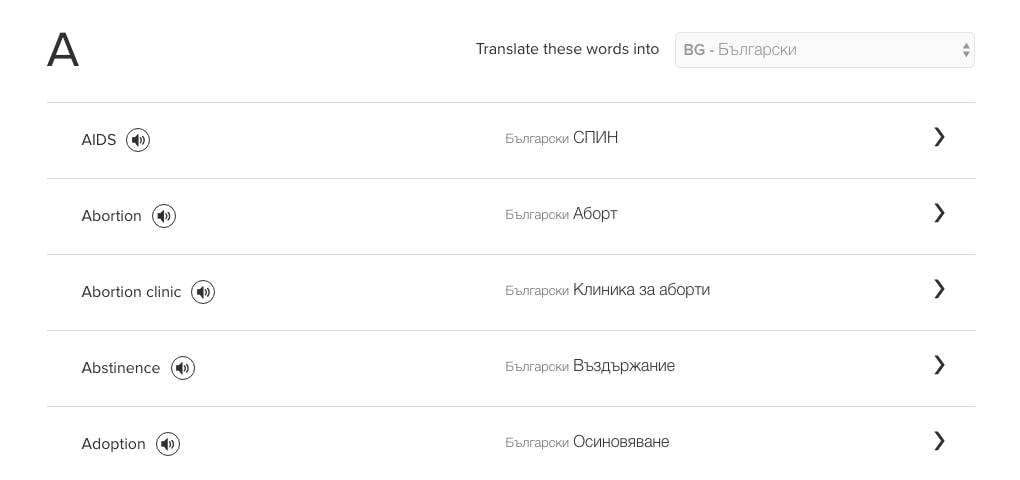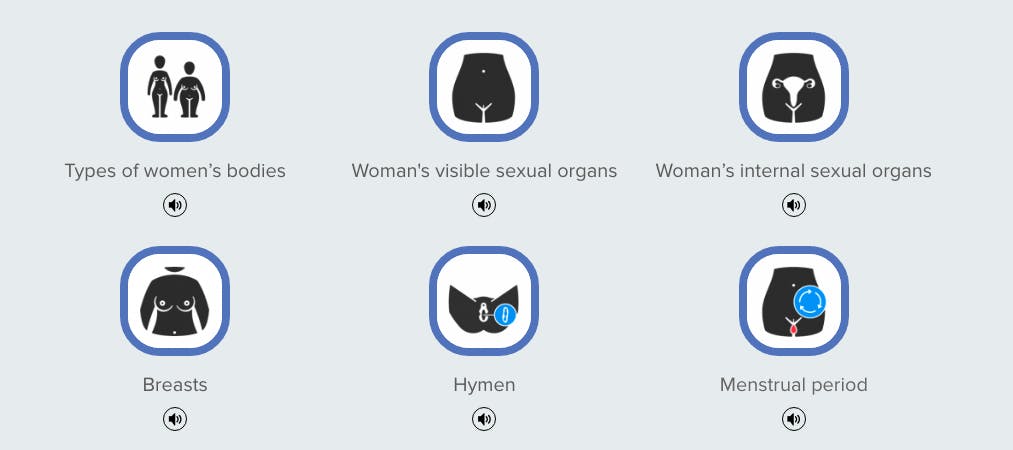The headlines were titillating:
“Germany sets up safe sex website for refugees—and it’s totally awkward,” cried the U.K.’s Metro.
“Website tells migrants how to handle the Germans,” read the Times of Europe.
“Germany welcomes refugees with sex education website,” claimed Fox News.
On social media, advocates for refugees and Muslim migrants called the German government’s new sex-ed website, Zanzu.de, “racist and demeaning.” When the site launched in February, with its textbook descriptions of rape and women’s bodies, the media suggested that the government had rushed to create it in reaction to a string of New Year’s Eve reports of sexual assault involving men who, according to Cologne police chief Wolfgang Albers, were “of Arab or North African appearance.”
So what is this Zanzu site, anyway? Was it created just to teach the influx of Middle Eastern migrants how not to sexually assault German women?
The Daily Dot reached out to Germany’s Federal Centre for Health Education (known as the BZgA), which created and launched Zanzu. Dr. Christine Winkelmann, head of a unit that oversees HIV and STI prevention education, explained that the BZgA first thought up the sex-ed website back in 2012 and began working on a needs assessment in partnership with Belgium’s Flemish Expertise Centre for Sexual Health in 2013.
“Zanzu was created to support intermediaries (medical doctors, medical personnel, or counselors) in their work with migrants who, for several reasons, don’t know the language of the host country, Germany or Belgium, yet,” Winkelmann told the Daily Dot. “These may be people who have migrated to Germany or Belgium for different reasons—EU internal migrants, marriage migrants, asylum seekers, and refugees.”
When asked whether the website was launched in response to the wave of New Year’s Eve assaults, Winkelmann responded: “No, certainly not.”
Immigration to Germany has been robust for years, as people from nearby conservative areas seek its relative freedoms and healthy economy. According to a 2015 German statistics bureau report, 20 percent of the country’s residents have an immigrant background; the majority of residents who are not native Germans are Turkish, followed by Polish, Italians, and Romanians. Of the top 15 nationality groups among migrants to German, the majority represent areas decimated by the Yugoslav Wars and bordering countries: Croatia, Serbia, Bosnia, Kosovo, Bulgaria, Hungary, and Greece.
Because all of these immigrants speak different languages, medical professionals often struggle to communicate with their patients. The German government created Zanzu in order to help doctors translate terms relating to family planning, pregnancy, HIV and STI prevention, and relationships into the main languages used by immigrant populations.
Part of the way Zanzu does that is by offering a glossary of medical terms that healthcare providers can easily translate into various languages—in addition to its many admittedly awkward illustrations of sex and bodies.
Zanzu’s English site is headlined “My body in words and images,” and has the general feel of a sex-ed pamphlet. There are dorky medical illustrations that, for example, explain how the menstrual period works and how to use a condom. While perhaps a bit more graphic than what we’re used to in the more uptight U.S., Zanzu covers all the basics of sex ed with a few special migration-related issues thrown in—like explaining that female genital mutilation is illegal in Germany.
“The website was launched in 13 languages at the beginning of the year, which was perceived by some of the media in the context of the refugees,” said Winkelmann. “The fact that the website has 13 languages increased the impression that its main target groups are the migrants themselves instead of the intermediaries working with the migrants.”
Language options include German, English, Polish, Dutch, Russian, Spanish, French, Turkish, Arabic, Bulgarian, Albanian, and Romanian.
Unlike the United States—where less than half of states mandate sex ed be taught in schools—Germany offers comprehensive sex education to youth starting in primary school. Sex ed continues throughout high school, and special HIV and STI prevention programs target youth and adults through outreach and education.
Because of its multilingual capabilities and the fact that it’s available to anyone with Web access, Zanzu may just be the Esperanto of sex ed.




